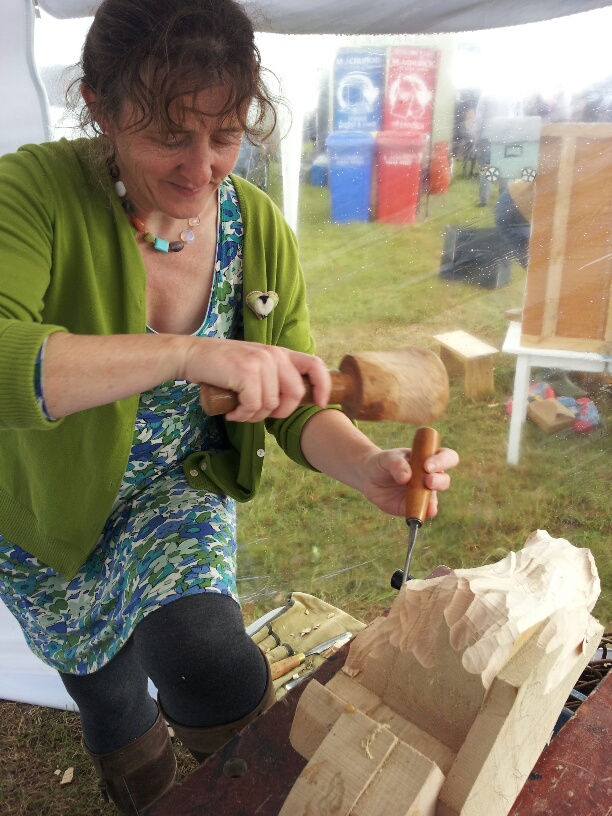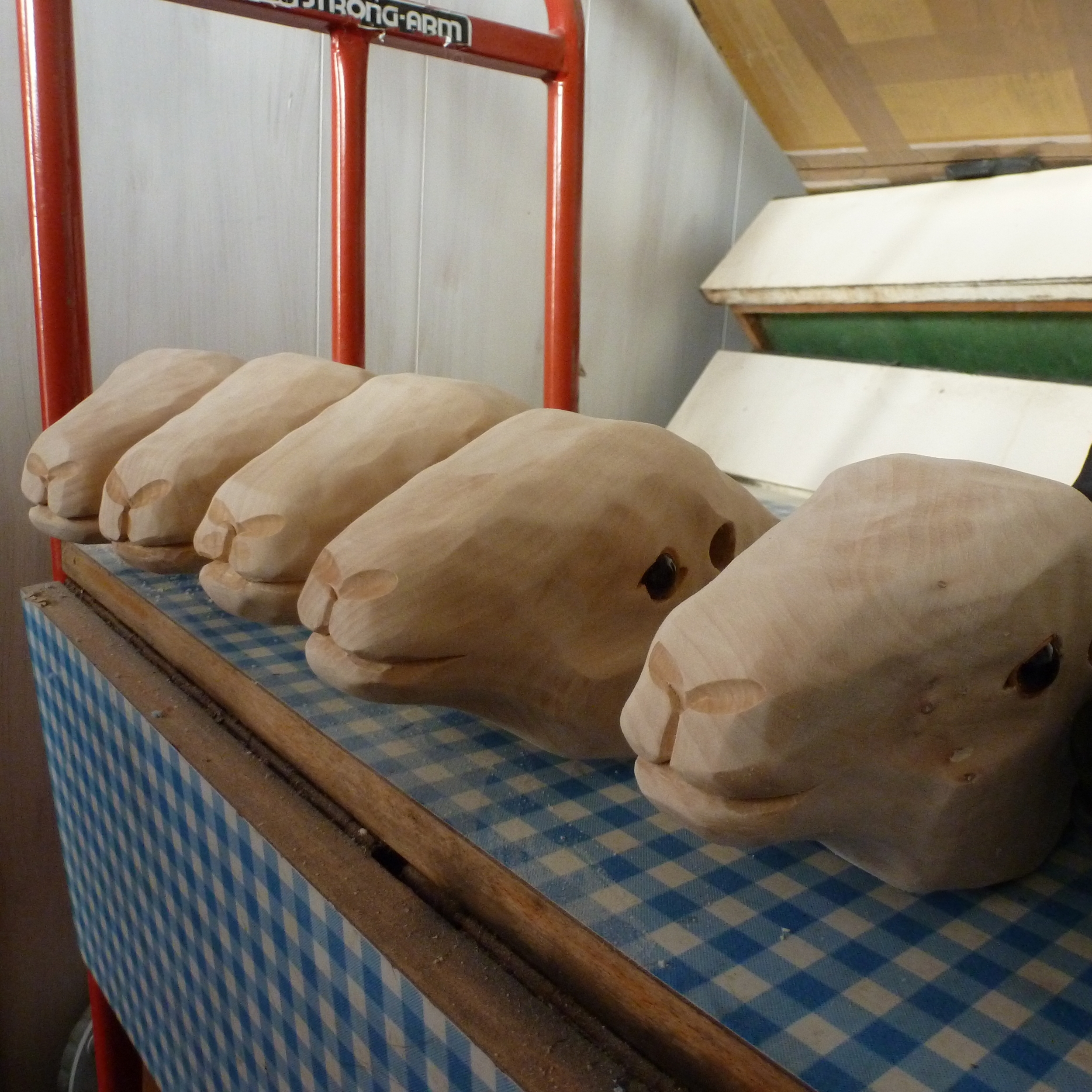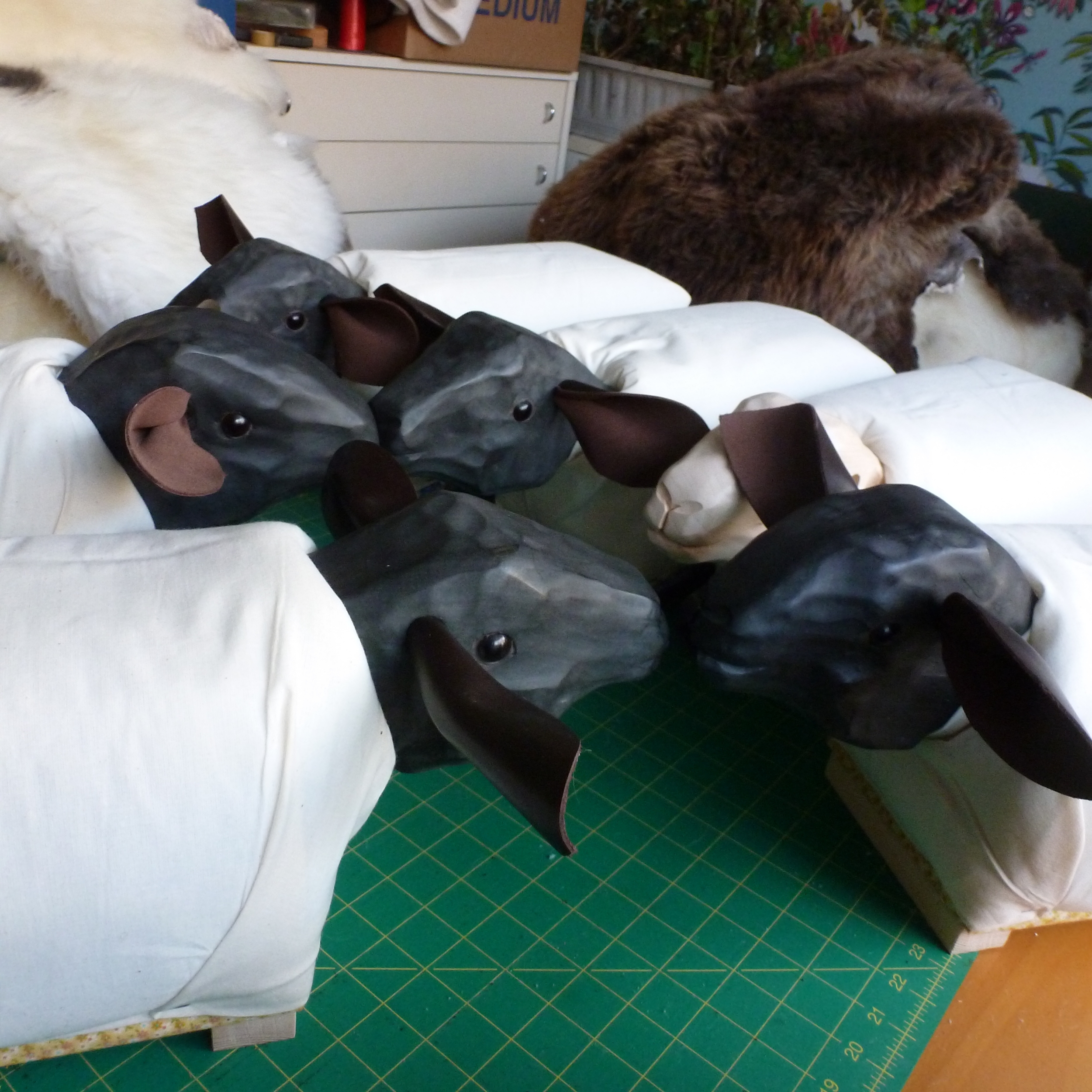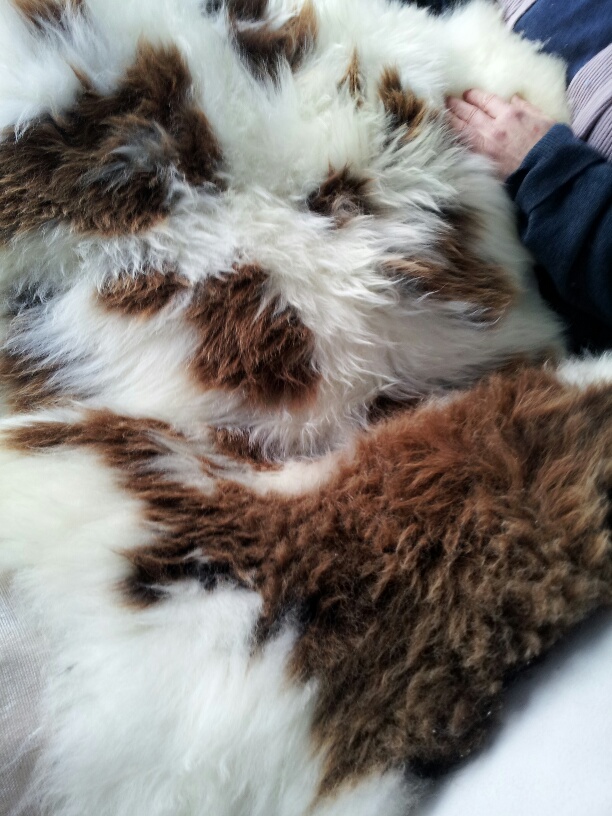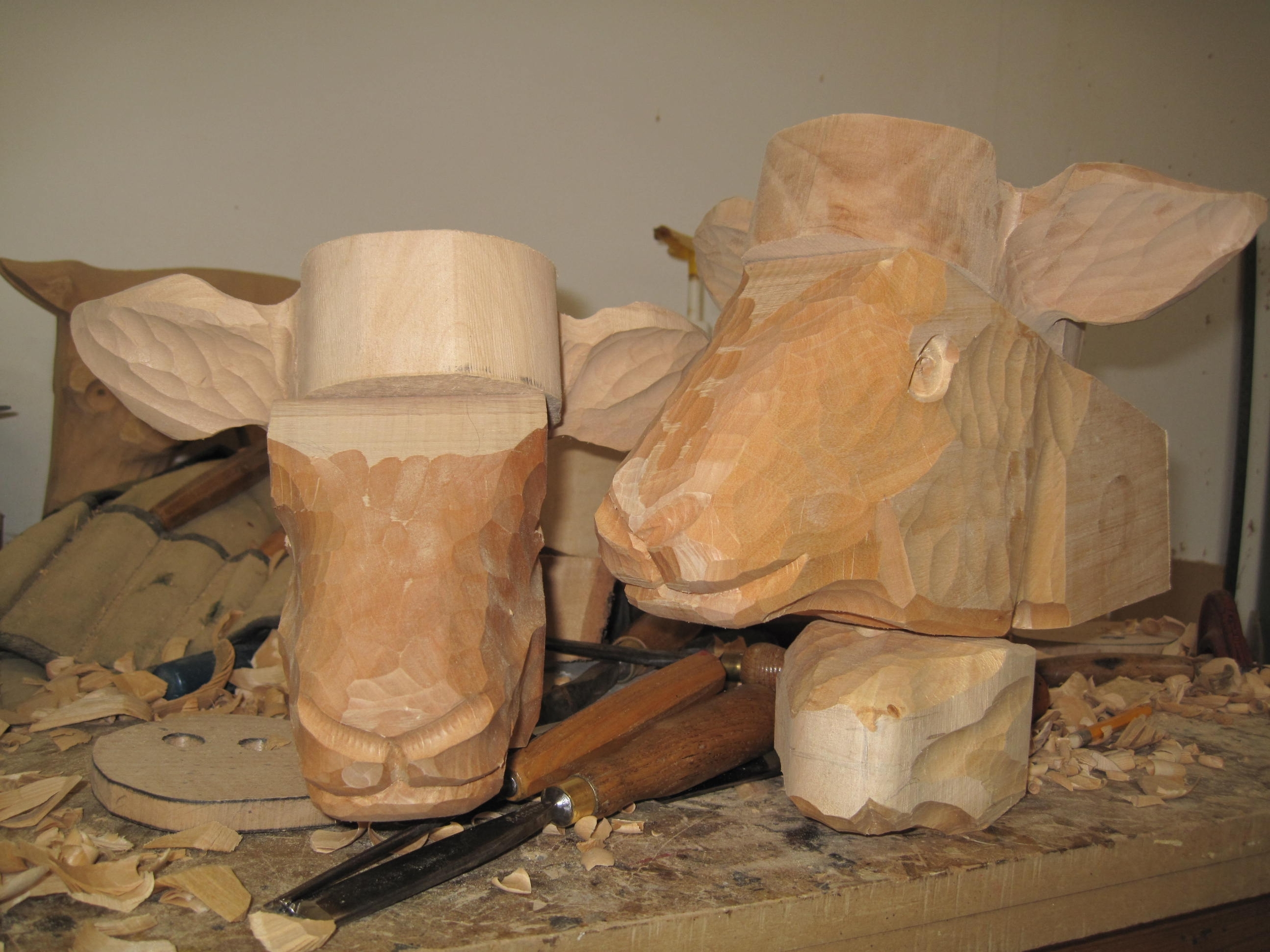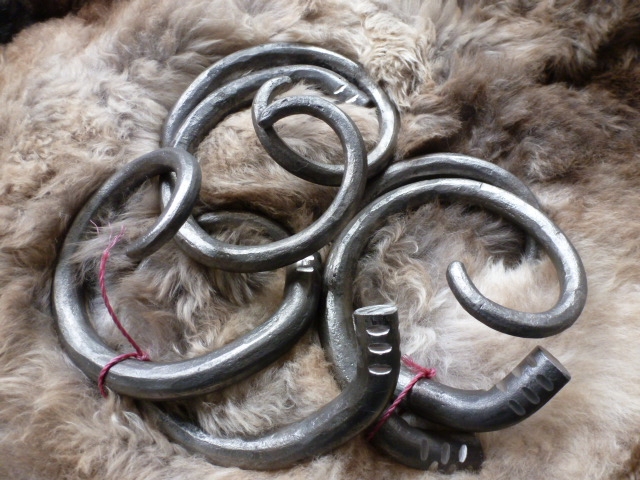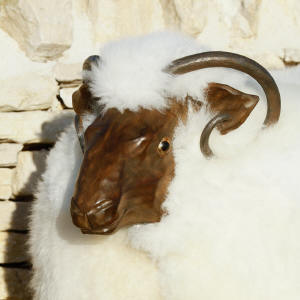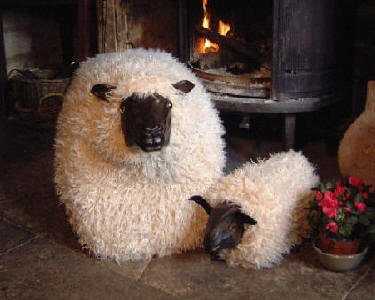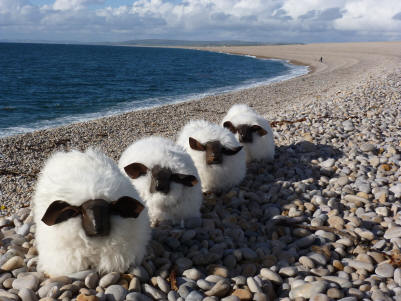Ewenique Flock
/I love it when I stumble across a unique find and this Ewenique Flock is certainly just that! A true artisan at work creating something truly wonderful. I first came across Liz whilst having a quick browse in the craft stalls at RHS Wisley earlier in the year and fell in love with her flock of sheep. I totally want one, my kids want one, or two (actually they want the whole flock!) and if they captured my families hearts so much I was sure you would also fall in love with them too. All totally unique and individually carved each sheep can be customised with special rare breed fleeces, or even a fleece from your own flock, the under cover can be embroidered with names, dates and messages to make perfect presents. I have interviewed Liz to find out more about the work involved in creating these totally fabulous sheep. Learn more about how someone who once carved merry-go-round horses got side-tracked to creating her own flock of sheep...
Where did the concept 'Follow the Flock' come from?
The Ewenique Furniture flock came about through a chance commission. I was exhibiting my carousel animals and rocking horses at a show when a local sheep breeder asked me to make a sheep shaped wooden frame with a realistic carved head to display her amazing Wensleydale sheep fleeces.I started the project but then a couple of babies came along so by the time I finished the frame the farmer had moved away and in the pre internet days I could not trace her so rather than be left with an unfinished and unsaleable piece I upholstered the frame, topping it with a synthetic sheepskin rug...the first Ethel was born! She turned out to be the perfect footstool, just the right size for a family of feet, great as a plaything, and a wonderful ice breaker at rather stuffy village meetings.
The fundamental design has stayed the same over the intervening 16 years but the upholstery has become more refined and a breakthrough was reached in 2012 when the sheep began to be covered in real sheepskin and sales increased massively.
The flock has enlarged to include Stan the Ram, a little taller than the Ethel design, to make a comfortable fun seat. The lambs of the flock were originally bolster cushion Baabettes but a total redesign in 2012 led to the Mirabelles, small sturdy and characterful footstools which feature many British rare breed coats.
Who is the creator of these sheep?
Liz was one of those pony mad little girls. All her rough books at school were covered with drawings of horses, the Maths teacher complained that all the margins were filled with horses and the art teacher even went so far as to ban any horses from her work so it is a wonderful irony that throughout Liz's thirty year carving career it is the horses, rather than the Maths which has proved far more useful.
Aged fourteen Liz found an article about a rocking horse maker in an old magazine and from then on her ambition was formed.
A brief diversion to university to gain a Botany degree intervened but less than a week after graduating she started what was to be a five year apprenticeship learning to make rocking horses...starting with carving their bottoms and eventually working up, after several years, to carving their heads.
Working in 3D and exploring the dynamics of an animal's shape and the way it moved was a thrilling experience and Liz's work is easily recognizable by this vivid sense of character and motion coupled with a sense of exuberance and humour.
Liz moved away from the limited forms of the rocking horses into the wonderful world of Carousel carving creating everything from dragons to chickens, and camels to her first ever sheep. Glorious times but eventually her contact in the industry retired and by then the rocking horse market was pretty well saturated after a boom in the 1990's where every Grandpa seemed to make a few for their grandchildren and friends so Liz had to develop a new range.
Liz & her Ewenique Flock
Where is the Flocks home turf and how are they made?
The flock originate from Portland in Dorset where Liz has The Ewenique Furniture Shop, although this is rather a misnomer as it is more workshop than shop, and so full that it is hard for any customers to squeeze inside. The shop is used for upholstering and finishing the sheep but the making process is rather peripatetic, with the carving being done by Liz in a more spacious and well equipped workshop up in Somerset, while the sanding and foam cutting is done down the road at Moatt Sails, often alongside the Team GB sails, rubbing shoulders with glory.
Stan's glorious horns are made of wrought iron by a talented blacksmith near Chard in Somerset, in a wonderfully rural workshop where one is likely to find ducklings warming in a corner of the forge.
The sheepskins are unwieldy things to sew and these are manfully tackled by Liz's partner Mark who is properly a sail-maker and so has deep wells of patience when wrestling to get the sheepskin under or through one of the two specialist sewing machines.
The sheepskins come from Devonia, the last commercial sheepskin tannery in England, based down at Buckfast in Devon. The quality is phenomenal and many of the Ewenique flock are covered with the rare breed coloured coats or 'pretties' as they are technically called.
The heads are carved by Liz using traditional hand tools from English limewood, Locally sourced from a Dorset wood merchant. The current flock is coming from a tree grown in Hardington Mandeville, Somerset.
Who makes up the flock?
Ethel the Sheep is a footstool with a forceful personality. Approx 1m long and 40cm tall with a dark face and a cream sheepskin coat.
Harriet the Blonde is the same size but with her head left in the natural pale wood.
Stan the Ram is a substantial seat. Approx 1m long by 55cm tall. He has wrought iron horns.
Mirabelles are small footstools. Approx 55cm long and 30cm tall. They have characterful carved heads but unlike the larger sheep they have leather ears, so they can be hugged. There is a lot of variety amongst these as the heads can be dark or pale and the coats are either cream, either long and shaggy, or short and silky or even wild and woolly – I had no idea of the variety of fleeces within British sheep – and this size can use the lovely 'pretties', naturally occurring coloured coats in a wonderful selection of greys, browns, spots, stripes and gradations.
Although the large sheep are usually cream because they require multiple sheepskins, they can come in a range of dyed colours, with black and a minky greige being the most popular.
All the sheepskin coats are tailored to fit and are removeable for cleaning, leaving the sheep in their calico pyjama layer.
If you would like to get your hands on a sheep or beautiful Stan the Ram you can contact Liz via her site https://eweniquefurniture.co.uk
This is not a sponsored post
All images have been provided by Liz Mangles


